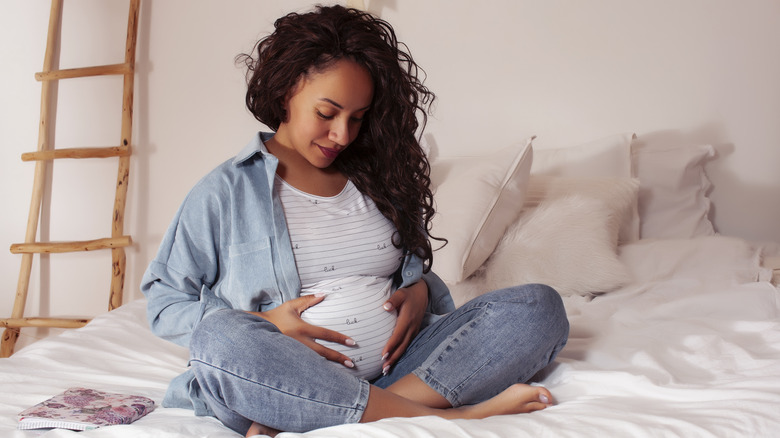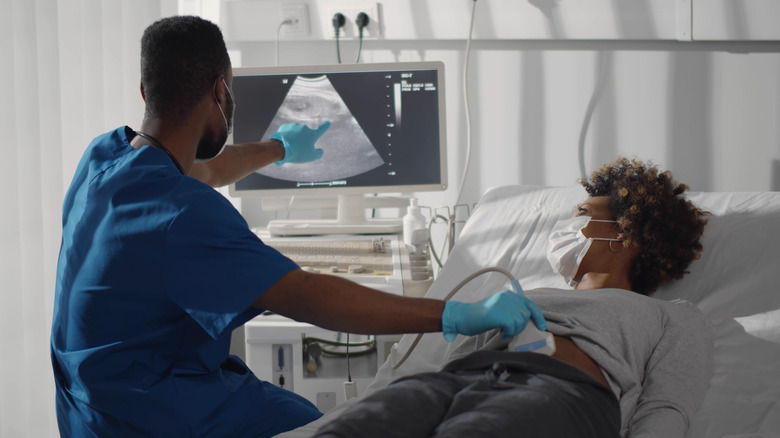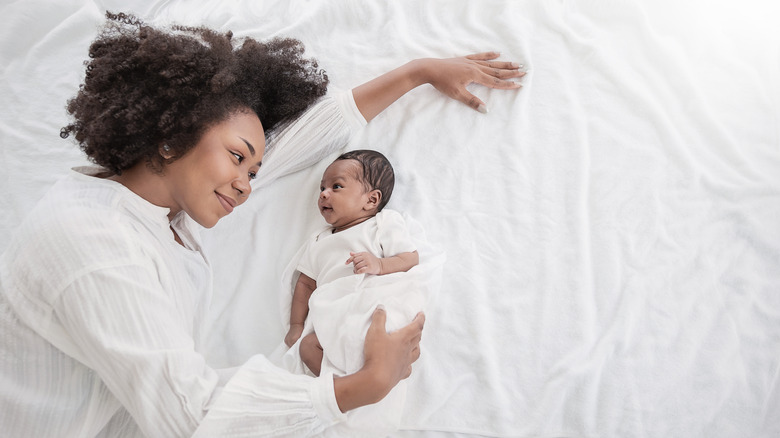What Is 'Advanced Maternal Age' In Pregnancy, And What Are The Risks?
You may have heard the word "geriatric" being used in relation to pregnancy. The may bring to mind an elderly couple sipping smoothies at a nursing home. Maybe they're playing bingo, reminiscing about their heyday, or planning to escape onto an international cruise and never return. So what could this have to do with pregnancy?
"Geriatric pregnancy," along with "elderly primigravida," are medical terms and, to put it bluntly, they're severely antiquated. Dr. Somi Javaid, an OB-GYN and sexual health specialist, argues that the term "geriatric pregnancy" in particular breeds false information, is psychologically harmful, inaccurate, and doesn't take into account everyone's unique needs (via Very Well Family).
Having your pregnancy labeled "geriatric" can place a stigma on you, which is not healthy for you or the baby. Fortunately, the medical field has gradually moved away from using the expression, and has begun adopting "advanced maternal age" instead. All these phrases have the same meaning, though — so should you be concerned if any of them gets applied to you?
The outdated term refers to pregnancy in your late 30s
"Advanced maternal age" is used to describe a woman facing childbirth after the age of 35. It's replaced "geriatric pregnancy" as the commonly-accepted medical phrase –the word "geriatric" refers to elderly individuals, particularly concerning health. Thus, "geriatric pregnancy" is an outdated and ageist phrase. One can argue it is sexist, too, since there is no name for an older man who impregnates someone.
A 2022 report conducted by the National Vital Statistics System shows an upward trend with pregnancies between the ages of 35 and 44. From 2020 to 2021, the birth rate of people in this age range rose by 5%. Specifically, the birth rate of those in their early 40s has increased an average of 3% each year from 1985 to 2020. To clarify, it is not taboo or even uncommon to choose to have children in your thirties or older.
Especially with advancements such as egg freezing and IVF, the prospect of children later in life is normal. There are many benefits to having children when you're older too. However, pregnancies at a more advanced age do face an above-average risk.
There are risks with advanced maternal age pregnancies
By age 30, your chances of falling pregnant naturally start to wane. The rate of decline increases when you reach 35 years old and, at age 45, it becomes highly unlikely. According to the American College of Obstetricians and Gynecologists, pregnancies after the age of 40 face a higher risk of preeclampsia (high blood pressure and organ injury), miscarriage, and further complications like preterm labor.
The possibility of medical complications doesn't only affect those who are pregnant but also the fetus itself. With later-stage pregnancies, the risks rise for the baby being born with missing, damaged, or extra chromosomes. While information is blanketed about advanced maternal-age pregnancy, Dr. Robin Kalish, who specializes in maternal and fetal medicine, says every pregnancy is unique.
She informed Health Matters, "A healthy 38-year-old could have an easier pregnancy than a 20-year-old who has multiple medical issues." Despite the dangers increasing with age, everyone's risk assessment is distinct. Dr. Kalish assures anybody planning to have children later that, "With proper care and monitoring, the majority of women in that age range go on to have a healthy pregnancy."


